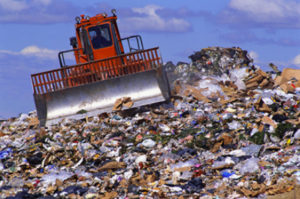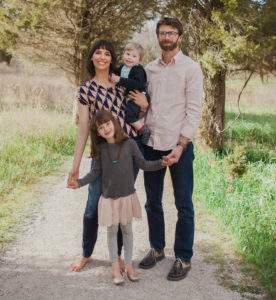“Acquire no more here than what is absolutely necessary.”
– from Hermas, an early Christian literary work (1st or 2nd century)
“Find out how much God has given you and from it take what you need;
the remainder is needed by others.”
– St. Augustine
In response to my blog posts about minimizing the amount of baby stuff we acquire, a common question popped up a couple of times: What’s so wrong with buying and owning stuff, anyway?
I’ve been meaning to explore this whole issue for a while – why a minimalist lifestyle is becoming increasingly important to me as a Jesus-follower.
Minimalism and Jesus
I first became acquainted with the minimalist lifestyle the way many people did: through Leo Babauta’s Zen Habits.
Leo taught me about how possessions are a burden, and how giving them away and living with less are liberating. He showed me how the compulsion to own more is rooted in fear and actually dragging us all down.
As I learned about the minimalist philosophy and way of life, I couldn’t help thinking: Why aren’t Christians at the forefront of this movement? Isn’t this exactly in line with what Jesus teaches? That material possessions don’t bring lasting joy, and can actually serve as dangerous distractions from what really matters?
Isn’t Jesus famous for saying that it’s harder for a rich guy to get into heaven than for a camel to walk through the eye of a needle, and for telling folks that in order to follow him, they need to sell all their possessions? Isn’t he the great leader who didn’t even have a place to lay his head?
So why was I not learning about simple living from the pulpit? Why  weren’t we Christians talking about how to get by with as few possessions as possible?
weren’t we Christians talking about how to get by with as few possessions as possible?
The only things I ever remembered being taught at church in regards to material wealth were that you should give 10% of your money to the church, and that you should avoid being too caught up in materialism. (“Just try not to love your stuff too much, in case Jesus ever asks you to give it up,” was the general idea. Interestingly, Jesus never seemed to ask anyone to give up their material wealth, so that was a huge relief).
I’m so grateful that Jesus’ wisdom can be found in so many places, and not just in Christian circles.
Since becoming acquainted with minimalism, however, I have begun to see that Christians have been talking about living with less for a long time (as seen in the quotations at the beginning of this post). I just hadn’t been hearing from them within my North American Evangelical context.
I truly believe that the things I learned from Leo and others are in tune with what Jesus taught, and as a consequence, minimalism has become increasingly important to me.
So what do minimalists (and Jesus) have to say about owning things?
As I’ve been learning more and more about the minimalist lifestyle, I’ve come across a few central arguments for getting rid of excess and trying to live with less. Here are a few of them.
(Remember, of course, that I’m writing this as someone who owns way too much stuff herself, and enjoys a comfortable life in one of the wealthiest nations in the world. I don’t know why you should even listen to me.)
· Owning things comes at a cost
Of course, almost all possessions have benefits and advantages – that’s why we own them. But we often forget that each additional thing in our possession comes at a personal cost beyond what we originally paid for it.
There are the obvious costs to many of our possessions: many modern commodities require a continuous stream of resources to maintain — things like batteries, gasoline, minutes, data, and insurance.
Many North Americans own so much stuff that they actually have to pay to keep it in storage: the self-storage industry in the U.S. has grown bigger than the entire music industry, with annual self-storage revenue estimated to be a whopping $32.7 billion in 2016. 1 We also have to build and buy bigger homes to house all our unused stuff: new homes today have three times the closet space of a typical 1950s home. 2
But on top of the financial cost of owning things, there are other costs. Each thing I own is another thing I have to look after — to keep clean, keep working, keep safe against thieves. Each additional item in my home is something I have to pick up, walk around, dust, clean, or keep in storage. They tax my time and attention. More possessions mean more clutter in my home and in my mind.
All possessions beyond what I need to survive are ultimately a burden.
Perhaps this is why Jesus tells us to “store up treasures in heaven” rather than “treasures on earth, where moths and vermin destroy, and where thieves break in and steal” (Matt 6:19).
Getting rid of excess and keeping out whatever I don’t need is therefore liberating.
· Possessions distract us from the important things
Because we need money to own more stuff, we have to spend more time working to earn that money. As mentioned above, we also have to take time to shop for things, keep them organized, and keep them clean and in working condition.
In other words, owning stuff takes up our valuable time.
 We also tend to waste time worrying about our possessions – worrying that they will be stolen, stained, or broken.
We also tend to waste time worrying about our possessions – worrying that they will be stolen, stained, or broken.
This is all time we could be spending having conversations with our spouses, kids, friends, and neighbours. It’s time we could be spending enjoying nature, praying, meditating, or being creative.
· Owning things we don’t need deprives others who do need them
There are only so many resources in the world. We live on a finite planet. As Gandhi famously said, “There is enough for everyone’s need, but not enough for everyone’s greed.”
The more stuff we own as individuals, the less there is available for others to access.
Jesus once said, “Anyone who has two shirts should share with the one who has none” (Luke 3:11). Dorothy Day interprets this to mean “if you have two coats, one of them belongs to the poor.”3
St. Basil the Great said it this way: “When someone strips a man of his clothes, we call him a thief. And one who might clothe the naked and does not – should he not be given the same name? The bread in your cupboard belongs to the hungry; the coat in your wardrobe belongs to the naked; the shoes you let rot belong to the barefoot; the money in your vaults belongs to the destitute.”4
In other words, anything I own that I’m not using rightly belongs to someone who could. One might say that I am hoarding other people’s possessions by holding onto things I don’t need.
· Owning things beyond necessity takes a heavy toll on the environment
First there’s the manufacturing and shipping of commodities. Then there’s the energy required to build and run retail stores. Then there’s the energy used up and the pollution created by shopping. Then there’s the energy used to run our devices and heat our homes full of stuff.
 And when we’re done with stuff, it gets chucked and has to sit in a landfill.
And when we’re done with stuff, it gets chucked and has to sit in a landfill.
If we own less, that’s less waste happening at each of these points in the chain. And caring for the environment is relevant to life in the Kingdom.
_____________
These are just a few of the reasons I strive to own fewer things.
I’ll be the first one to admit that I’m not even close to owning the “bare minimum.” I indulge in plenty of waste and surplus. But I want to begin to work towards a minimalist lifestyle, where I get rid of the excess so that I can spend my time, energy, and money on the things that really matter — friends, family, community, and God.
This is my goal: to own so little (or things of so little value to the rest of the world) that if someone ever broke into my home and robbed me, it wouldn’t be that big a deal because I don’t have that much to lose. (Honestly, I’m almost at that point. I’m not going to get too broken up about it if someone steals my two-year-old Android or Acer laptop computer).
things of so little value to the rest of the world) that if someone ever broke into my home and robbed me, it wouldn’t be that big a deal because I don’t have that much to lose. (Honestly, I’m almost at that point. I’m not going to get too broken up about it if someone steals my two-year-old Android or Acer laptop computer).
I’m still working on doing better, though.
Check out Kathleen Quiring’s website.
Follow her on Facebook and Instagram
All photos courtesy of Kathleen Quiring and Kolbe Times
Sources:
- U.S. Self-Storage Industry Statistics; Alexander Harris; SpareFoot; 2017
- Shannon Hayes, Radical Homemakers, p. 86.
- Quoted in Shane Claiborne’s Irresistible Revolution, p. 165.
- Ditto.









Love these thoughts. Hard to practice, but something to strive after
Very well written to inspire me to continue to work at minimizing my belongings, to share, to give, to spend less. Than-you!